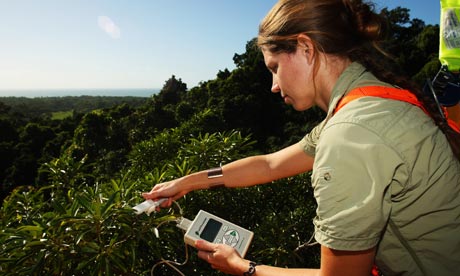In the age of the blogosphere, blocking facts means science is damaged and public trust lost "Like it or not, this [demand for openness] indicates a transformation in the way science has to be conducted in this century." That, say many, will be the lasting legacy of the independent review published last week into the controversial emails between climate scientists that were stolen from the University of East Anglia and posted online. Scientists were cleared, as expected, of any fiddling of the figures to exaggerate the case for global warming. But the review heavily criticised them and the university for consistently blocking access to data and failing to recognise the risk such secrecy posed to the "credibility of UK climate science". It is now possible to assess the damage. The scientific evidence – showing that the world is warming fast due to human actions and presents a clear future danger – remains untarnished. However, the public's trust in that science has been scorched. Professor Bob Watson, chief scientific adviser to the Department for Environment, Food and Rural Affairs and former head of the UN's Intergovernmental Panel on Climate Change, said he wanted the report to "draw a line under this episode so that the scientific community can begin to regain the trust of the public and continue to do its vital work on climate change". But if there was no great global warming conspiracy, why did the leaking of the emails last November become such a PR disaster? Climate scientists, such as Oxford University's Myles Allen, blame the media: "What everyone has lost sight of is the spectacular failure of mainstream journalism to keep the whole affair in perspective." The review, led by Sir Muir Russell, does not mention the media. Instead, it examines the reaction of the scientists at the UEA's Climatic Research Unit (CRU) to the pressure exerted by bloggers: "An important feature of the blogosphere is the extent to which it demands openness and access to data. A failure to recognise this and to act appropriately can lead to immense reputational damage by feeding allegations of cover-up." The review adds: "We found a lack of recognition… of the extent to which earlier action to release information… might have minimised the problems." Pressure on the scientists, whose once esoteric work creating records of past temperatures had gained global significance, was intense. In 2005, CRU head Phil Jones replied to a request: "We have 25 or so years invested in the work. Why should I make the data available to you, when your aim is to try and find something wrong with it?" But, the review implies, the more they blocked, the more the Freedom of Information requests flooded in. On the same day the Russell review was published, the Information Commissioner's Office published a little-noticed notice stating that UEA had breached two FOI regulations in relation to requests made in 2008. Professor Geoffrey Boulton, an eminent earth scientist and Russell review panel member, said: "We have to move science from a private enterprise to a public enterprise." It was bad luck that the CRU scientists were singled out, said Dr James Lovelock, originator of the Gaia hypothesis, adding that the group was among the best in the world at climate science. But he said: "Science has to start examining the way it works. This report compares peer review, which is 'pure', with the blogosphere, which is 'impure' – and there's some truth in that, to be sure – but the peer-review process can be exceedingly prejudiced and exert censorship even." Russell found the CRU scientists were innocent of subverting the peer-review process, through which researchers recommend or reject work for publication in a journal. The review acknowledges the language in some emails could be thought to reflect "partial and aggressive" behaviour, such as this from CRU's Keith Briffa: "Confidentially I now need a hard and if required an extensive case for rejecting" a paper. But, said Russell, "we think it more plausible that it reflects the rough and tumble of interaction in an area of science that has become heavily contested". Arch-critic of CRU, blogger Steve McIntyre, was far from convinced. In his opinion, "the only reasonably objective inquiry to date", which criticised the behaviour of the CRU scientists, was that by Fred Pearce in The Guardian.The editor of the Lancet, Dr Richard Horton, gave evidence to the inquiry on peer review. What was at stake was far bigger than the climate change science being done at CRU, he said. "What Russell has identified is the beginning of a revolution in the way science is being done," he said. "If scientists don't adapt to this soon, the trust that the public and politicians put in science will be jeopardised. The credibility of science itself is at stake."Climategate shows the need for openness by scientists

Subscribe to:
Post Comments (Atom)





0 comments:
Post a Comment